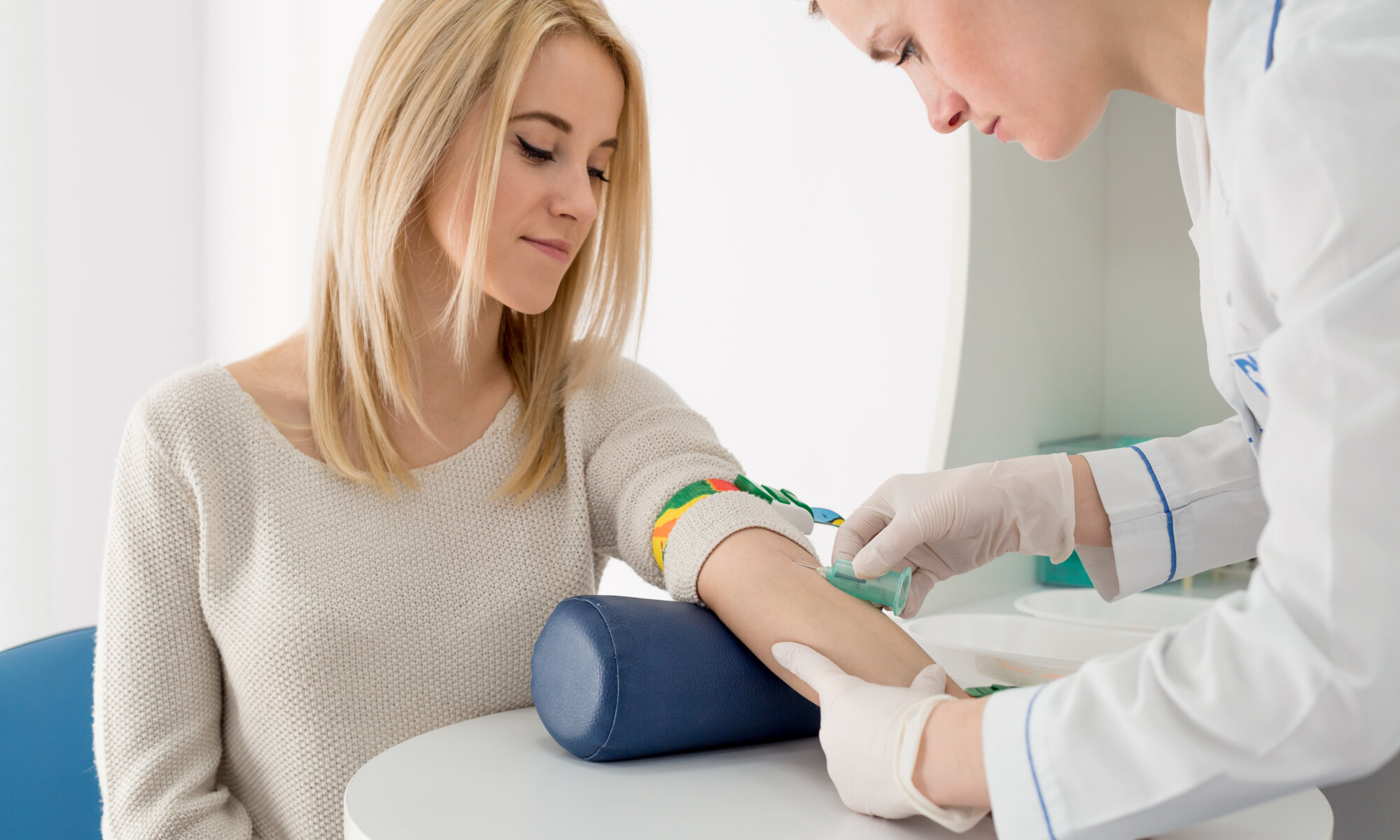Tests and screenings are common when you’re in your first trimester. They check the health and wellbeing of your baby. Providers often suggest a 11-week blood test, which checks for chromosomal conditions your baby may have. This blood test can also reveal your baby’s sex!
So, why do providers suggest this screening in the first place? First trimester screenings and tests let you know your baby is healthy. In this article, we’ll go over what to expect from your 10-week blood test.
How Do First Trimester Screenings Work?
During pregnancy, small fragments of baby’s DNA pass through the placenta and can be found circulating in the mother’s bloodstream. So with a simple blood draw from the mother, we can determine the possibility of chromosomal disorders by analyzing the baby’s DNA. Your blood will be sent to a lab for analysis, and you’ll wait for your results. There’s no downtime, and you can return to normal activity immediately.
The 11 week blood test also measures two substances found in the mother’s blood. The first is a pregnancy-associated plasma protein called PAPP-A. The second substance is called human chorionic gonadotropin (hCG). These levels help your provider determine the health of your pregnancy.
In your first trimester, as an optional genetic screening test, a technician will also conduct an ultrasound to measure the nuchal translucency (NT) thickness, a space at the back of the baby’s neck. Together, these tests will determine if there is a risk of your baby having Down syndrome or Trisomy 18.
Chromosomal Abnormalities Tested for in First Trimester Blood Screening
Down syndrome is characterized by physical, social, and mental disabilities. Knowing if your baby may suffer from Down syndrome ahead of time can help you prepare for raising a child with this disability. According to Women&Infants.org, in an unscreened population, about one in every 700 babies is born with Down syndrome. Usually, it is not inherited, so a baby can be affected even if there is no history of Down syndrome in the family. Although Down syndrome occurs more frequently as mothers get older, about 70% of babies with Down syndrome are born to women who are younger than 35 years old. The first-trimester blood test results have an 85% success rate of correctly screening the potential of a baby with Down syndrome.
Trisomy 18 is a more severe disability and is oftentimes fatal to the baby. According to Trisomy18.org, in one out of every 2,000 pregnancies, a Trisomy 18 error occurs and about 50% of babies diagnosed with Trisomy 18 are stillbirths.
If you get a positive screening test for a chromosomal abnormality, your provider will discuss options. They will refer you to see a genetic counselor and they may suggest additional testing. Some of those tests are:
- Amniocentesis – A test during the second semester, where the amniotic fluid is removed for testing. It can be used to diagnose Down syndrome and other chromosomal conditions.
- Chorionic villus sampling – A small placenta sample is removed to diagnose Down syndrome. Since it’s invasive, it poses a risk of miscarriage.
Determining Baby’s Sex From First Trimester Blood Screening
This blood test also determines the baby’s sex! Your baby’s genitalia develops at 7 weeks, but it can be difficult to accurately determine the sex of the baby via ultrasound until your baby is further developed and positioned ideally.
If you want to know the sex of your baby as early as 11 weeks, your first trimester blood screening can easily and reliably inform you. The 11 week blood test checks for some genetic conditions that are sex-based, so the genetic screening is able to tell you the sex of your baby.
Other First Trimester Screenings
You and your provider may also decide to perform genetic carrier screening tests. Even if the mother and father don’t suffer from genetic conditions, they may have carrier genes. Blood may be collected from the mother and father to check for:
- Cystic fibrosis
- Sickle cell disease
- Fragile X syndrome
- Tay-Sachs disease
- Spinal muscular atrophy
Your age, ethnic group, and health may play a factor in whether you decide to get genetic carrier screenings.
Your provider will recommend which tests make sense for your family. They’ll also help you understand any and all of your first trimester screening results. Whatever the results are, they will be able to support and guide you.
Are you looking for an OB/Gyn you can trust? Do you live in the Tucson area? Book an appointment today!
References:
- https://www.mayoclinic.org/tests-procedures/first-trimester-screening/about/pac-20394169
- https://medlineplus.gov/genetics/understanding/testing/nipt/
- https://www.healthline.com/health/pregnancy/blood-test-for-gender#at-home
- https://www.webmd.com/baby/pregnant-genetic-testing#1
- https://www.womenandinfants.org/services/medical-screening/screening-for-down-syndrome
- https://www.trisomy18.org/blog/the-trisomy-18-foundations-director-gives-talk-at-national-conference/

